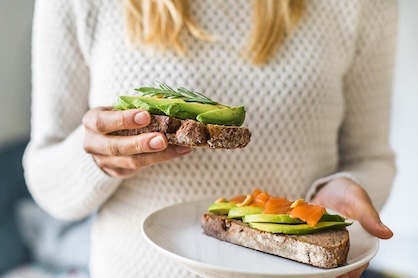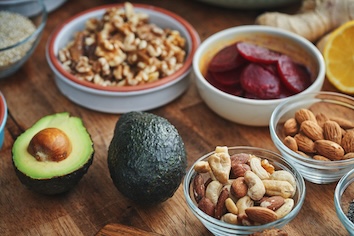High cholesterol is one of the most common health issues worldwide. For many people, it develops silently without noticeable symptoms, yet it can raise the risk of heart attack, stroke, and other cardiovascular problems. While cholesterol-lowering medications like statins are widely prescribed, natural approaches are often recommended as a first step — or as part of a larger plan alongside medication.
The encouraging news is that many aspects of cholesterol management are within your control. What you eat, how you move, and the way you handle stress all influence your cholesterol levels. Even small, consistent changes can make a meaningful difference. Here, we'll explore expert-recommended strategies for lowering cholesterol naturally, including dietary adjustments, supplements, lifestyle changes, and working with your healthcare provider to track progress.
Dietary changes to reduce LDL
Diet plays a direct role in cholesterol management. LDL cholesterol, often referred to as “bad” cholesterol, is the type that can accumulate in your arteries and contribute to plaque buildup. Fortunately, certain foods lower LDL while others raise it, meaning you can make smart swaps that protect your heart.
Cutting back on harmful fats is one way to reduce your LDL cholesterol levels. You can start by reducing your intake of saturated fats, found in red meat, butter, and full-fat dairy. It's also smart to avoid trans fats, which are still sometimes found in fried foods, packaged pastries, and margarines. Try replacing harmful fats with unsaturated fats can improve cholesterol balance. Good choices include olive oil, avocado, nuts, and seeds. Fatty fish like salmon, sardines, and mackerel provide omega-3 fatty acids and can also help you boost your healthy fat intake.
Increasing your fiber intake can also help you lower your cholesterol. Fiber acts like a sponge in the digestive system, binding to cholesterol and helping remove it from the body. Aim for 25–30 grams per day, focusing on oats, barley, legumes, fruits, and vegetables. Including plant sterols and stanols can also help to lower your cholesterol. These naturally occurring compounds reduce cholesterol absorption in the gut, and are found in nuts, seeds, fruits, and vegetables, as well as fortified foods, including certain yogurts, juices, and spreads.
You'll also want to think about what to cut back on to improve your cholesterol, including refined carbohydrates and sugars. While you don't need to completely eliminate favorite foods, you'll want to limit foods like sugar drinks, candy, pastries, cookies, and white bread.
Supplements
Diet should always be the foundation of cholesterol management, but supplements can provide added support. Before starting any, it’s best to consult a healthcare provider to ensure safety and avoid interactions with medications.
Consider adding the following supplements to your routine to support healthy cholesterol levels:
- Fish oil or algal oil: Adding omega-3 fatty acids to your nutrition plan can help to reduce triglycerides and support heart health, which can help to improve your overall lipid balance.
- Psyllium husk: This soluble fiber supplement has been shown to reduce LDL cholesterol when taken daily.
- Plant sterol supplements: These supplements reduce your body's ability to absorb cholesterol in the digestive tract. Another supplement — red yeast rice — contains similar compounds, and may help to lower your LDL cholesterol.
- Niacin (vitamin B3): This vitamin can help to increase your good cholesterol while lowering your bad cholesterol.
- Coenzyme Q10: This supplement doesn't directly lower your cholesterol, but it can support your heart health, and may help with the side effects associated with certain cholesterol medications.
Can lifestyle changes help?
Lifestyle habits are a cornerstone of heart health. Even if your diet is strong, lack of activity, smoking, or chronic stress can undermine your progress. Experts emphasize that consistent, sustainable lifestyle changes can make a significant difference.
Try these strategies to create lasting lifestyle changes that can positively affect your cholesterol levels:
- Participate in aerobic exercise (like cycling, swimming, or walking) at a moderate intensity for at least 150 minutes per week. Strength train at least two days per week to build muscle.
- Achieve and/or maintain a healthy weight, as excess body weight can raise your cholesterol and triglyceride levels.
- If you smoke, quit. Smoking can damage your blood vessels and negatively affect cholesterol levels.
- If you drink alcohol, do so in moderation (one drink daily for women, two for men). Drinking excessively can raise triglycerides and blood pressure, which can harm your cardiovascular health.
- Find stress management habits that work well for you. Chronic stress contributes to unhealthy habits and hormonal imbalances that affect cholesterol. Practices such as meditation, yoga, journaling, or outdoor activities can help.
- Prioritize healthy sleep. Poor sleep is linked to weight gain, insulin resistance, and higher cholesterol levels. Aim for 7 to 9 hours of restful sleep per night.
Tracking progress and consulting with your healthcare provider
While natural strategies are highly effective, tracking your progress and working with a healthcare provider ensures safety and success. Your doctor can help you come up with a plan that melds lifestyle changes and medical testing to ensure that you're headed in the right direction when it comes to achieving healthy cholesterol levels.
Getting regular blood tests can help you and your care provider monitor your progress. Healthy adults should be tested every 4–6 years, but those with risk factors may need checks more often. Your doctor can help you define realistic targets, such as lowering LDL by a specific number of points, as having measurable goals makes it easier to stay motivated and see progress. Your personal cholesterol response varies based on genetics, lifestyle, and other health conditions. Your care provider may recommend combining natural strategies with medication for best results. If you're taking cholesterol medication, be sure to report unusual symptoms promptly. Adjustments can be made to reduce risks while keeping cholesterol under control.
Remember, consistency is key. Improvements usually happen gradually, often over months. Sticking with changes and being patient helps ensure long-term success. Your healthcare provider can act as a partner, helping you balance natural methods with medical interventions if necessary.
Evidation can help you move toward your health goals, one healthy choice at a time
If you're working toward becoming your healthiest self, Evidation is here to support you. When you download the Evidation app, you'll be prompted to share the health data you're already tracking, such as information from your wearable fitness tracker, nutrition apps, etc. We'll use this information to provide you with personalized, content-based insights to help you make the decisions that move your health forward. Click here to learn more about Evidation and get started today.











